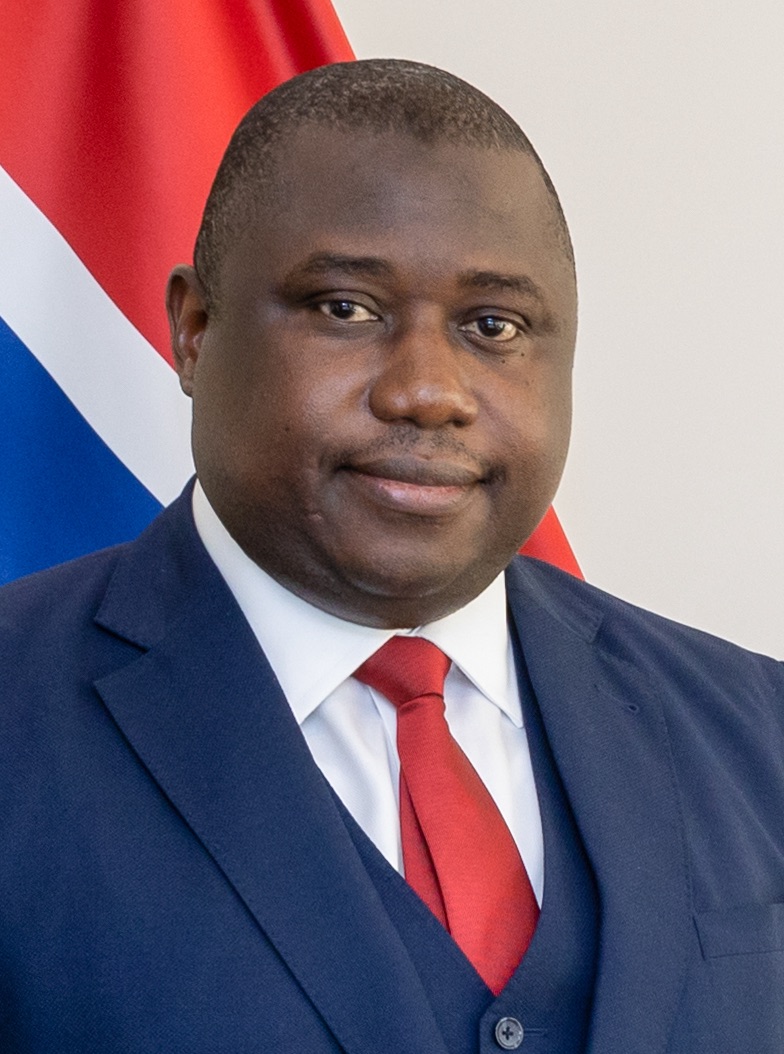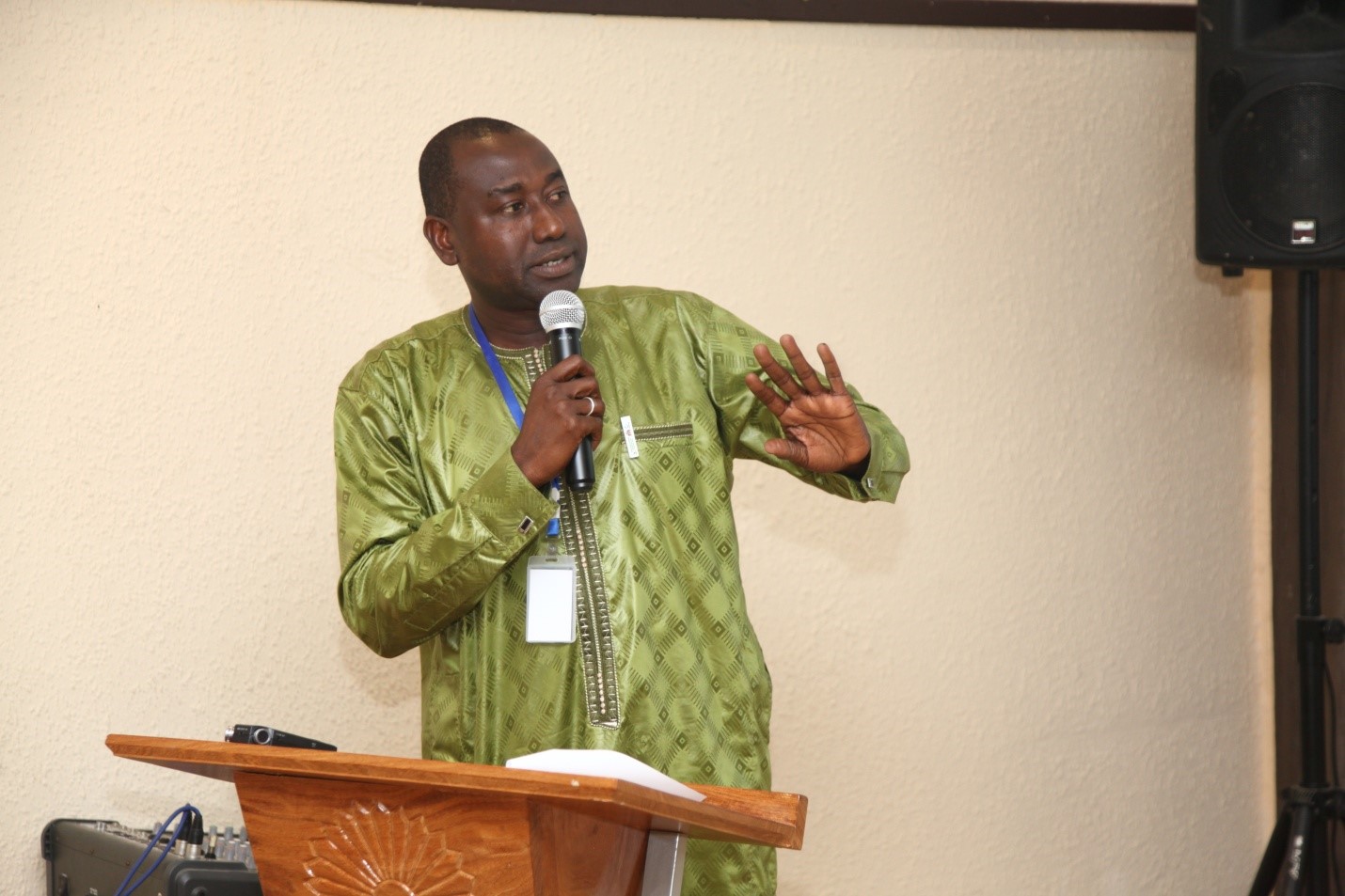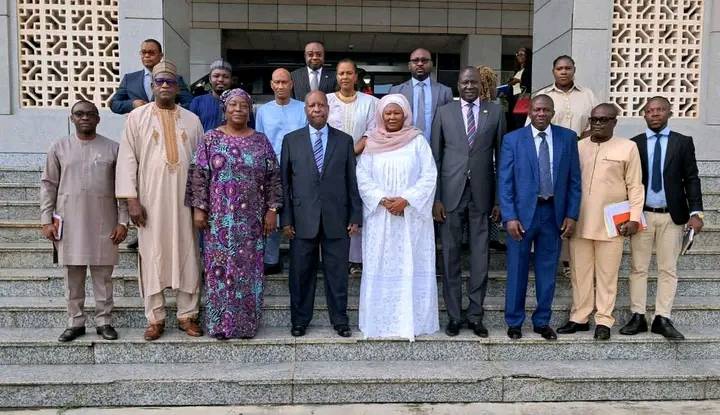By: Patience Mama Loum
The Ministry of Justice said last week that the verdict in the just-ended crimes against human trial against former Gambian interior minister Ousman Sonko came at a crucial time in Gambia’s road to recovery from autocracy to democracy.
“The verdict comes at a pivotal time in our history as the country undergoes a transition from an autocratic to a democratic governance system,” the Ministry stated in a press release.
The Ministry said the Gambia’s transitional justice programme was designed and continues to benefit from decades of lessons learned, good practices, and global discourse on the pursuit of justice and accountability for atrocity crimes since the Nuremberg Trials.
“Therefore, transitional justice in The Gambia reaffirms The Government’s uncompromisable duty not only to ensure justice and accountability, but also to promote truth, provide reparations to victims, and guarantee non-recurrence of large-scale serious human rights violations, through memorialization, institutional, constitutional and legislative reforms,” it added.
Meanwhile, when asked what perpetrators of human rights violations could learn from Sonko’s fate, including perpetrators of Jammeh-era crimes, Ida Persson, special advisor on Transitional Justice matters at the Ministry highlighted that criminal prosecutions are a critical component of the Gambia’s transitional justice programme. This, she said, will aim to avoid collective punishment, and to hold individuals who ordered, planned, or perpetrated crimes responsible for their actions.
“Collectively, criminal prosecutions contribute to national reconciliation but promote individual accountability whilst deterring future perpetrators. When senior state officials like Mr. Sonko are prosecuted, this reinforces the notion that regardless of one’s official capacity, rank, or status, we must all be held accountable for our actions,” she added.
Gambia’s former Interior Minister, Ousman Sonko has been sentenced to 20 years imprisonment for homicide, torture, and false imprisonment as crimes against humanity, the second person to be convicted for such crimes following the Liberian Rebel Commander, Alieu Kosiah in 2023, who also got similar sentencing.
Although life imprisonment is in the Swiss law, this, according to the Swiss legal history, is the highest sentencing for Crimes against humanity in Switzerland.
The head of the office for the International Centre for Transitional Justice (ICTJ), Didier Gbery, said the principles of universal jurisdiction “demonstrates that it is possible to prosecute these crimes committed in The Gambia during the last two decades and can be a good incentive in dealing with past crimes”.
“Criminals can’t hide nowhere. I hope that the sentence will give some closure to the victims and send a strong message in favor of accountability for past crimes, not only in The Gambia but also in the sub-region,” he added.
Last month, the National Assembly of The Gambia passed the Special Accountability Mechanism Bill and the Special Prosecutor’s Office Bill.
“The Special Accountability Mechanism will be a comprehensive mechanism for investigating, prosecuting, and adjudicating cases related to serious human rights violations for both domestic and international crimes documented by the Truth, Reconciliation, and Reparations Commission (TRRC) between July 1994 and January 2017,” the MOJ states.





